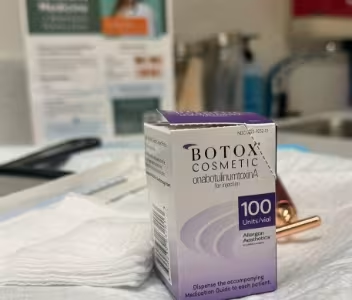What is Tripledemic?
The recent surge in R.S.V., Flu and COVID-19 has been named as Tripledemic. We have seen a spike in hospitalization from these viruses. Up to 27 million Americans have already had the flu, with upto 250,000 flu related hospitalizations and anywhere from 7,000-20,000 deaths. For COVID infections, we are in the first omicron variant surge and now, several sub-variant beyond omicron's first B.A.-1 have also emerged. R.S.V., or respiratory syncytial virus, had made so many young children ill this winter. Weekly pediatric hospitalizations for R.S.V. are at the highest recorded.
What symptoms should you look out for each of them?
RSV - runny nosem sneezing, coughing, mild fevers COVID-19 - fever, chills, respiratory symptoms such as cough, sore throat, runny nose, loss of taste or smell, fatigue, body aches Flu - fever, chills, body aches, cough, sore throat and runny nose In order to confirm, which virus is causing an infection, your primary care physician can perform a nasal swab.
Get Vaccinated!
Flu- This year's flu vaccine covers four different influenza strains and is thus called "quadrivalent" vaccine. It is recommended for anyone ages 6months and up. COVID-19 vaccine - If it has been been over 2 months since your last COVID vaccine dose, you should get a booster dose from your local pharmacy or primary care physician. RSV - There is no vaccine given for RSV for general pediatric population. If your child has chronic lung problems or was born prematurely, call your pediatrician to inquire about palivizumab. Vaccination rates are low across the country. Just 36% of people 65 and older have gotten an updated COVID booster this winter, and the rates are lower for all younger age groups. About 64% of adults 65 and older, and about 46% of children, have received the flu vaccine.
What about treatments?
If you do get infected with COVID, you may want to contact your health care provider within a day or two of getting symptoms. Call your physician to see if you qualify for Paxlovid or monoclonal antibodies. For flu, there are also antiviral treatments available that can be given within first 2 days of getting infected.
What can you do to reduce risks of illness?
Get vaccinated! Being up to date with your vaccinated, significantly reduced your chances of getting these viral illnesses. Other means of protection continue to include consideration for masks for indoor environments this winter. Masks have been shown to reduce transmission of viruses, thereby reducing risks of illness. All these viruses can contagious and hence, washing your hands, covering your nose and mouth while coughing or sneezing can help prevent the spread of the virus.
Get Treated at Brentwood Primary Care
Brentwood Primary Care's board-certified primary care physician, Dr Shreya Khatri is pleased to provide her patients with a high-quality care. If you have any questions or would like to schedule a consultation, contact brentwoodprimarycare.com or call 925-471-4223 today.














